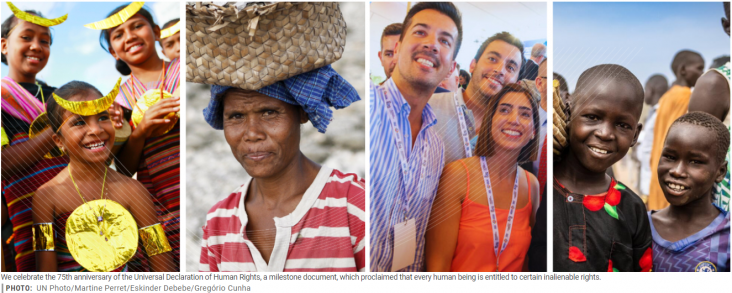This research highlights the potential environmental and social impacts of scaling renewable energy technologies that rely on transition minerals, emphasizing the need to study resource frontiers to understand the local consequences of global climate policies. This topic is relevant to the International Day of Indigenous Peoples as it underscores the importance of considering the impacts on indigenous communities and their lands in the pursuit of sustainable energy solutions.
This study underscores the importance of recognizing and respecting diverse worldviews, knowledge systems, and values in addressing global challenges like biodiversity loss and climate change. By providing a framework that emphasizes understanding onto-epistemological assumptions and power dynamics, the research offers principles to guide more inclusive and respectful engagement with diverse perspectives, aligning with the goals of the International Day of Indigenous Peoples to promote cultural diversity and indigenous knowledge in conservation efforts.
Illegal Wildlife Trade (IWT) is among the most lucrative illegal industries in the world and is a significant driver of biodiversity decline. This paper outline the basics of IWT and discuss its cascading consequences on environments, human lives and communities, national stability, and the economy.
This study supports SDG 3, 6, and 16 by providing a comprehensive quantitative analysis of the association between conflict and the incidence of cholera in Yemen, highlighting how conflict-related destruction has compounded water, sanitation, and hygiene issues in Yemen.

10 December 2023 marks the 75th anniversary of one of the world's most groundbreaking global pledges: the Universal Declaration of Human Rights (UDHR).

Approximately 15 per cent of the world's population live with some form of disability and 80 per cent live in developing countries. This Special collection aims to highlight this important issue and hopefully provide measures towards an inclusive and supported environment for all irrespective of disability. All book chapters and journal articles are free to download and share.
This research emphasizes the importance of recognizing diverse perspectives and values in defining and conserving forests, highlighting the dominance of Western institutions in shaping global discourses on forest conservation. The study underscores the need to incorporate Indigenous and local perspectives in defining forest terms to address recognition and procedural inequities, aligning with the objectives of the International Day of Indigenous Peoples to promote cultural diversity and inclusivity in conservation practices.
The increased exposure to violence and sexual crimes among Indigenous women, girls, and Two Spirit people results from longstanding historical trauma and anti-Indigenous racism. The Missing and Murdered Indigenous Women, Girls, and Two-Spirit People (MMIWG2S) movement emerged as a result of the need for governments and organisations in the USA and Canada to act against acute violence towards Indigenous people
This paper explore Aboriginal ancestral narratives, geomorphological interpretations and archaeological evidence relating to the Murray River (Rinta) in South Australia’s Riverland region. It provides an indigeous history for the people.
UN's Summit of the Future 2024: Paving the Path for SDG Resources
